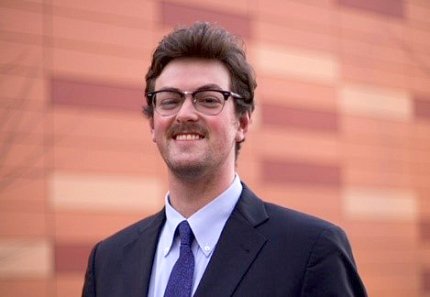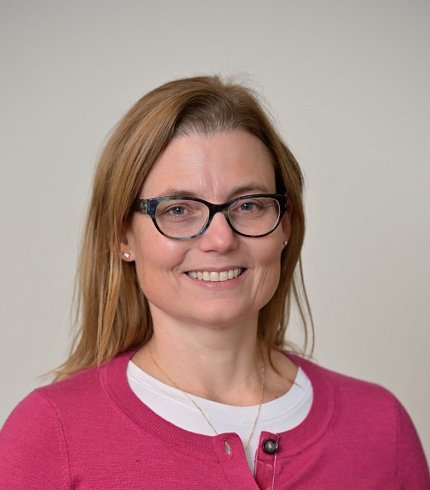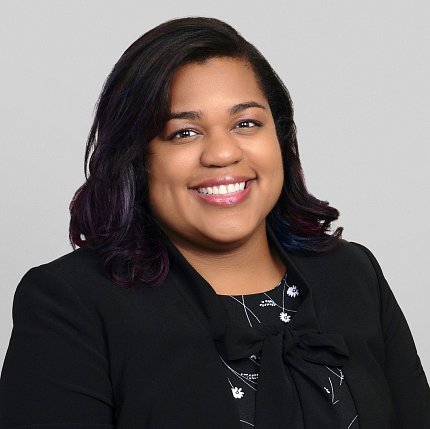Staff Perspectives
NIH’ers Discuss Proposed Changes to Mission Statement

NIH’s mission statement is going under the microscope again. In an August 2023 email to staff, Acting NIH Director Dr. Lawrence Tabak announced proposed changes, saying it is “important that the mission statement accurately reflects NIH’s goal of turning scientific discoveries into better health for all.”
The step follows a recommendation by the advisory committee to the director (ACD) working group on diversity’s subgroup on individuals with disabilities. Its December 2022 report suggested NIH “remove the language of ‘reducing disability’ from the NIH mission statement” to support disability inclusion.
Currently the mission statement reads:
“To seek fundamental knowledge about the nature and behavior of living systems and the application of that knowledge to enhance health, lengthen life and reduce illness and disability.”
The subgroup calls for NIH to “identify and remove any ableist language and images that may exist in its communication and policy practices” in order to “promote inclusion of disabled people.”
The report defined ableism as a deeply embedded belief in society that people with disabilities are flawed and less valuable than nondisabled people, leading to increased stigma and exclusionary practices. To their point, the current mission statement could be interpreted as perpetuating ableist beliefs that disabled people are flawed and need to be “fixed.”
The mission statement changed a decade ago to its current form. The previous iteration ended with “reduce the burdens of illness and disability,” which some believed had ableist undertones. The change happened after an NIH’er questioned using “burden” to NIH leadership. The NIH Record reported David Rice, a deaf staff member then with NEI, suggesting the term could “offend people who do not consider their disabilities to be burdensome.” See article at https://go.nih.gov/U9b36lO.
As mission statements can be thought of as living documents, the newly proposed language evolved to “to seek fundamental knowledge about the nature and behavior of living systems and to apply that knowledge to optimize health and prevent or reduce illness for all people.”
NIH asked the public for feedback via a Request for Information (RFI) to ensure the revision “reflects the NIH mission as accurately as possible.” Read the RFI at https://go.nih.gov/7B0lCFZ.
NIH staff who participate in the 3 Blind Mice and ABILITIES employee resource groups were asked to contribute their perspectives on the proposed changes. Several members responded. Note, the expressed views are their own and are not representative of their employer or professional duties.

Steven Isaacson identifies as an autistic social worker with the National Institute on Mental Health. He applauds the change aimed at reducing stigma around disability.
“Environmental and systemic barriers can prevent people with disabilities from having equal access, but agency culture plays the biggest role,” he said. “I’m glad NIH is taking this step by considering how organizational culture plays a role in ableism.”

Dr. Heather Kimmel agrees with the need for the change too, recognizing that “unfortunately, it has been my experience that individuals with disabilities are often overlooked when discussing diversity.” She serves as a health scientist administrator at the National Institute on Drug Abuse. “It is also important to recognize that there is tremendous diversity within the disability community and one cannot assume that all individuals with a certain type of disability have the same perspectives or needs,” she said.
“It would be a major step forward to remove the framing of disability as something that needs to be fixed in our mission statement and to move towards inclusion and accessibility for people with disabilities in everything we do at NIH,” said Dr. Amanda Alise Price, director of the Office of Health Equity and chief scientific diversity officer at the Eunice Kennedy Shriver National Institute of Child Health and Human Development. “Despite belonging to multiple underrepresented groups, the greatest impediment to pursuing my scientific career has been ableism—the unjust treatment I have experienced when people perceive my academic abilities as less than because I navigate the world with the help of mobility aids and assistive devices. I am a stronger scientist because of my disability and the skills I have gained from managing my complex medical care, by coping with the daily challenges through resilience and savvy problem-solving and in expertly balancing competing demands while pursuing the career I love.”

From my personal perspective as a person with a visual impairment, the proposed revised mission statement’s shift away from “reducing disability” refocuses NIH’s attention towards seeing people for who they are, not what they are. The true test going forward is seeing if words lead to action. My hope is NIH will actually implement and achieve this target in the research it funds and support staff who make up our agency in order to optimize health for all.
Reiterating a point I made in the NIH Virtual Tour, I appreciate NIH’s willingness to open its arms to hearing the needs and concerns of persons with disabilities, but we must continue making progress.
Read more about ACD’s subgroup at https://go.nih.gov/VtcTNnr.
To see Kosub’s excerpt on the tour, go to https://go.nih.gov/YHWkC4d.
And, there’s still time until Friday, Nov. 24, 2023, to provide feedback on the revised mission statement. Use the form at https://go.nih.gov/sPscmqI.
The author is senior advisor for legislative and media affairs, Office of Extramural Research, Office of the Director, NIH, and occasional NIH Record correspondent.
